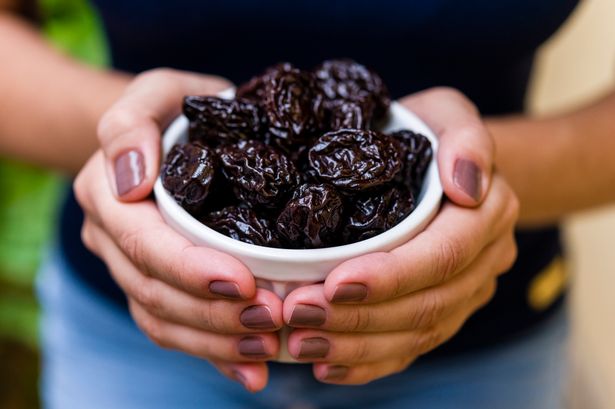
Research has revealed that incorporating just one serving of prunes into a daily diet may significantly reduce the risk of osteoporosis, a condition impacting more than three million people in the UK. Osteoporosis leads to decreased bone density, making bones more fragile and susceptible to fractures. This condition predominantly affects women, particularly those who are post-menopausal, due to the decline in oestrogen levels.
A study published in the American Journal of Nutrition in March 2022 highlights the potential benefits of prunes for bone health. The research found that consuming a daily serving of approximately 50 grams, equivalent to five or six prunes, can help maintain bone mineral density in the hips of post-menopausal women. While there are pharmaceutical options available to treat and prevent osteoporosis, dietary changes, such as including prunes, present a promising natural alternative.
Dr. Ashley Ennedy, an occupational and environmental medicine physician based in San Diego, discussed these findings on social media platform TikTok. She emphasized the significance of this research for women unable to use prescription medications, stating, “This could also reduce hip fracture risk.”
Prunes are rich in essential nutrients, including Vitamin K and potassium, both of which contribute to bone health. Additionally, prunes may help reduce inflammation, a key factor in bone loss. As bones are living tissues that undergo continuous regeneration, the process of bone density loss naturally accelerates with age. If this deterioration occurs faster than new bone can form, osteoporosis can develop, often going unnoticed until a fracture occurs.
The NHS warns that people with osteoporosis can sustain fractures from minor incidents, such as a cough or sneeze. Common fractures include those of the ribs or spine, which can occur due to the structural weakness of bones affected by the condition.
Lifestyle factors also play a crucial role in reducing osteoporosis risk. Regular exercise, avoiding smoking, and ensuring adequate sunlight exposure for vitamin D synthesis can all contribute positively to bone health. As the population ages, understanding and addressing the risk factors associated with osteoporosis will become increasingly important.
In conclusion, while further studies are required to solidify the findings regarding prunes and bone health, the current research offers an intriguing glimpse into how simple dietary changes may help combat osteoporosis and promote overall well-being.






